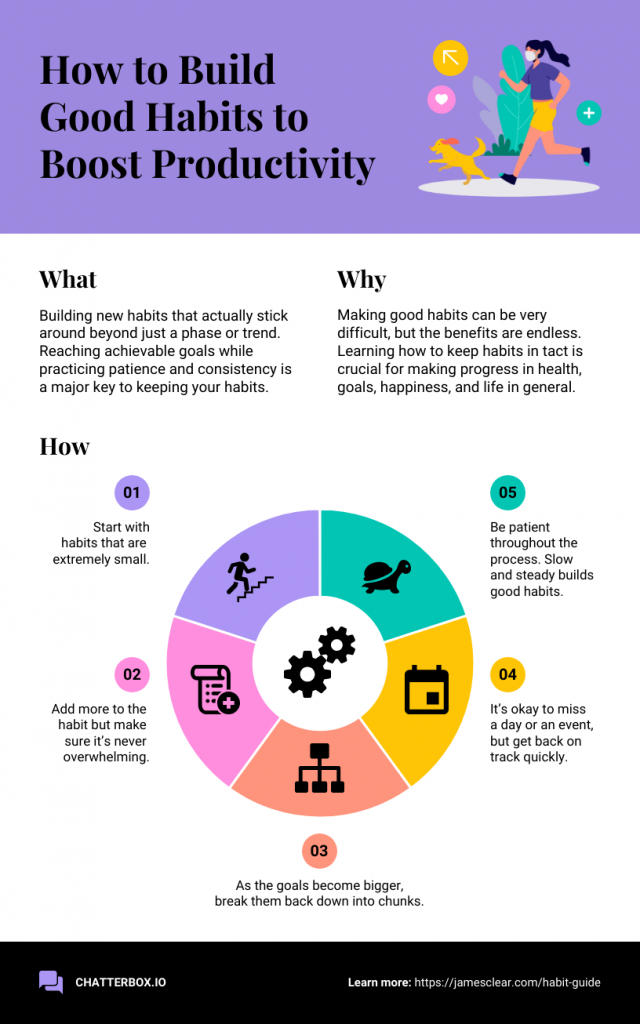Do you often find yourself low on motivation at university? Do not worry—you are not alone in this situation. We have prepared eight simple habits that you will want to follow. But do not start all of them at once. It would be impossible to implement all of them in a day and create a new and sustainable routine overnight. The list provided will work for students from all different academic backgrounds—high school or university. Most importantly, you do not need special equipment or talent for them!
Finding the WHY
First, you must determine where you want to go and what curriculum you wish to pursue. Taking stock of your wants, needs, and goals is essential because proper orientation can help in life and your future career. So you must ask yourself:
- What is it that you wish to concentrate on? What is your motivation to go through the career ladder? What led you to choose your subject, and why did you decide to learn this subject at this school, college, etc.? For instance, do you want to be an independent business person or become a part of a big company? Do you have a specific interest in any particular sector in the case of skills development? This will help define the drivers.
- How do you perceive the world today? Do you have a cause that you wish to advocate while using the degree you are pursuing? Is there something you are passionate about or disturbed about in today’s society? Do you want to change certain situations, opinions, laws, or standards?
- What motivates you most? This thing pushes you to go on. It is also something that will best show your character and skills.
Define your study goals
Now that you clearly know what you want from your education, let’s get more specific. You must divide all your existing goals into short-term, medium-term, and long-term goals. Your main objective should not be about simply passing the exam and moving on to the following year.
You can look further ahead and set objectives of what you would like to do after your degree, but also take the big goal of ‘passing this exam’ and subdivide it into smaller goals. It creates a real plan of action and greater specificity of how to get there. This method also saves time and makes even tiny moments of success crucial. It will also help you get motivated when things get boring.
Also, make sure to define tasks or things that you forget to do or do not have time for them. These tasks can be countless essays. To avoid missed deadlines or extra stress, you can find professionals to help you fulfill your ‘write my paper for me’ request.
Getting organized

The best thing you can do to help yourself gain knowledge and have fun simultaneously is to be organized. Organization begins with different steps, such as arranging your files, lecture notes, and syllabus on your computer.
If you take a lot of handwritten notes, use color-coding with sticky notes, markers, or index cards to distinguish between different lectures or semesters. Maintaining paper or electronic records and recording the school year’s primary activities (course schedule, tests, assignments, homework, reading, etc.) is especially crucial. Once again, you can easily use color coding for this!
Besides helping you identify the most suitable time to research depending on your daily activities and work effectively, this method will also help you organize your daily timetable based on your study schedule. You might find it interesting to try organizing your day with checklists. It also means that it will be much easier for you to manage other things in your schedule, like when you have to go to different classes, when you have to do sports, when you have to spend time with your loved ones, etc.
Identify your study routine and methods
The best thing students must determine is how they should study and what methods benefit them. Everyone is different. And who would know better than you what methods best suit you?
This can involve using the computer to write notes, writing weekly and daily planners, and altering the working environment. Or, perhaps you require periods of intensive studying. For that, you can use the Pomodoro technique. This technique includes 25 minutes of studying and 5 minutes of break.
When it comes to the places where you study, how the surroundings feel and look is important! So, you need to create the ideal conditions for yourself. Your study room should be calm, clean, and closed, free from outside interference. Most importantly, it should be a different room from where a person rests and sleeps. For your routine, you should also:
- Attend every lesson. This will enable you to listen and participate more actively, thus enabling you to research, comprehend, and revise expeditiously.
- Practice the many methods of note-taking. We suggest using abbreviations, where possible, and if not, use mnemonics or any other device that you find suitable. In particular, writing something down is often a valuable and time-saving task that helps prevent material loss. This is a part of your learning to prepare for your exams and material memorization.
- Know the important material in your subjects, familiarize yourself with the course schedule and the definitions of key concepts, and create flash cards.
Just stick to it, my friend
We cannot stress this enough—discipline has a greater impact than motivation in any studying institution. And let’s remember—motivation can help, but it is not the ultimate solution. You will get the best at first, but the deal will be consistent. Ensure that your mind is fully engaged in the task, and do not allow yourself to dwindle on negative emotion or thinking. And do not procrastinate!

Stay in a positive environment
This is especially important because all people are happy to be surrounded by people who are always willing to help. It is always a blessing to have your classmates around you or nearby. And there is something else that should be remembered – your classmates can also teach you new skills, methods, or topics! They can also assist in clarifying some parts of the course and even give you their notes if they are away!
Get yourself a wellness routine
We all need a good lifestyle and balance, right? While managing work, studying, and relationships, we may feel exhausted. As its name suggests, a healthy lifestyle is about practicing good health habits in all aspects of your life: the physical, mental, and spiritual. Oh, come on, you knew that was coming. Every day should include a correct diet, plenty of physical activity, enough rest, and time for games!
To manage your health, you may begin the day with a 30-minute walk at a brisk pace or gladly take a few minutes break. Just walking between study sessions can do wonders for the body and soul. There are many other great activities that can be useful for relaxation, such as physically active games, yoga, walking with friends, etc.
Dealing with stress

You are a college student, and you get a backbreaking schedule of exams that will shortly commence, and now the pressure is on. That is why knowing how to cope with stress and where to direct it is crucial. When you sit for an exam, all that study and preparation might, without a doubt, adversely affect your health.
To avoid all the pressure, implement meditation in your life. It helps you concentrate on your life in the moment and leave all worries behind for at least half an hour.
Conclusion
We hope these tips will reduce your worry about life and studying. Start with one habit and then add the other recommendations to your routine. Good luck with your learning!


